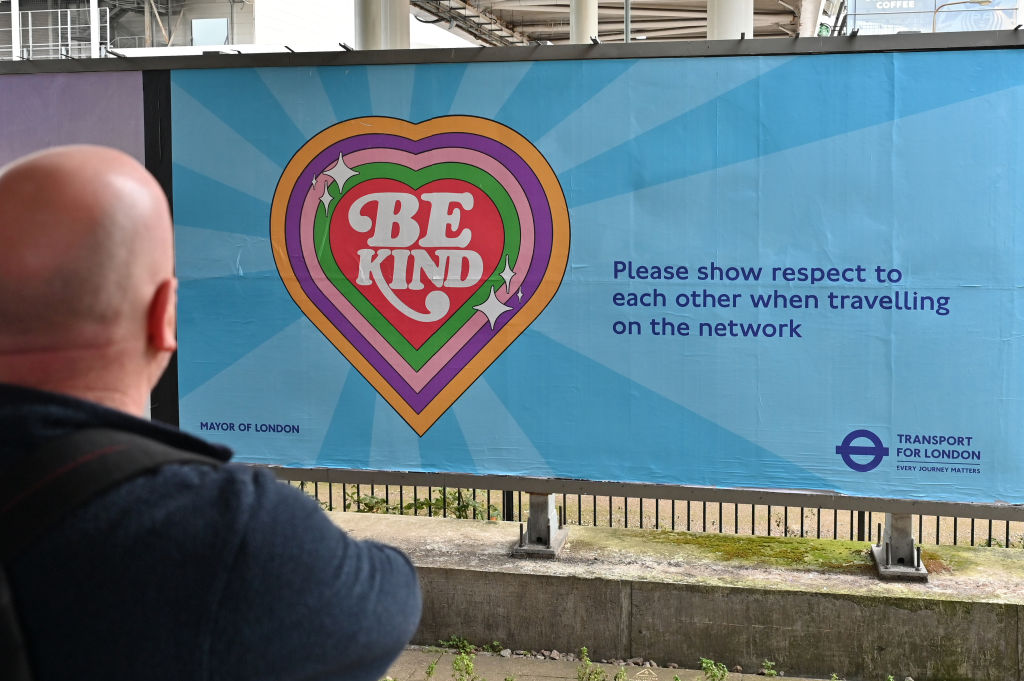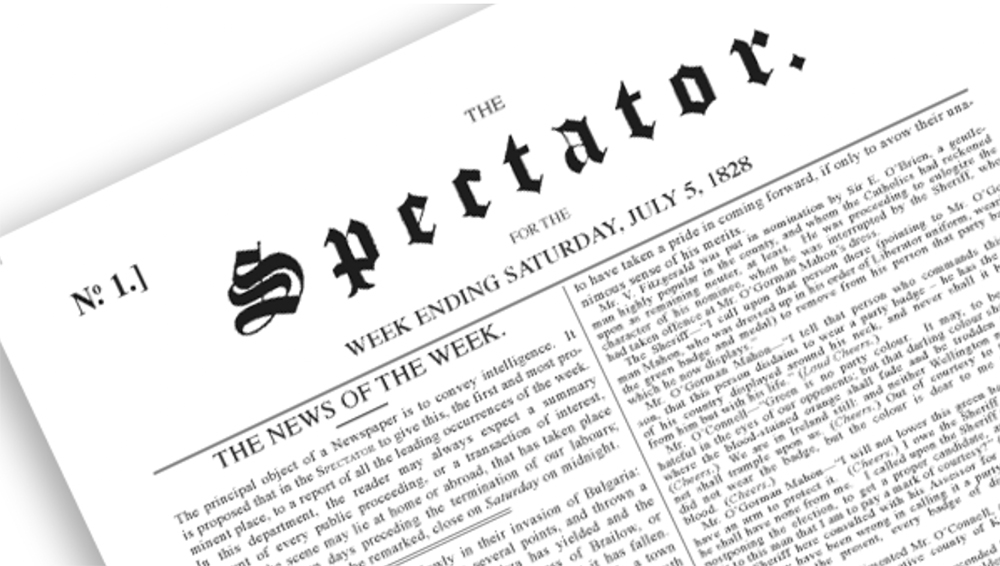The vice-chancellor of Oxford University, Professor Irene Tracey, has been giving some gloriously counterintuitive advice recently on how to safeguard free speech in academia. On Tuesday, she claimed that teaching the ethos of equity, diversity and inclusion (EDI) ‘goes hand in hand with our commitment to academic freedom and free speech.’ Yet diversity training always has the opposite effect. The only things students inducted into the race-obsessed, hyper-liberal doctrine of EDI are likely to learn is what words not to say and what opinions not to air in order to avoid ostracism, censure or cancellation
‘Kindness’ is the velvet glove covering the iron fist of hyper-liberalism
The next day, speaking at an academic summit in Saudi Arabia, Professor Tracey continued in a similar vein. ‘Words matter and have an effect on people,’ she said, adding that ‘kindness, courtesy and respect are things we have to remind and educate our students about’. These sentiments, suggestive of another woke canon – that words are all-powerful – points to a further paradox: there’s no easier way to silence others than by making an appeal to ‘kindness’.
This has always been the crafty, winning tactic of hyper-liberalism: it protests that it’s simply being nice. It’s merely about ‘good manners’, ‘being kind’, protecting the defenceless from discriminatory actions and hurtful words. How could anyone disagree that ‘black lives matter’? What have you possibly got against ‘equity’? Only a hateful bigot or ‘phobe’ could oppose the right for transexuals to live as they please.
Yet ‘kindness’ is the velvet glove covering the iron fist of hyper-liberalism, a fundamentally intolerant, bullying and dictatorial creed. Over the past decade the obligation for ‘kindness’ and imperative for ‘compassion’ have invariably been the pretexts for censorship and cancellation. ‘Being kind’ is the excuse needed to muzzle those who say ‘hurtful’ or ‘offensive’ things.
The tyranny of kindness has slinked its way into our society, laws and our collective mindset. The evidence can be gleaned from the headlines almost on a daily basis. Only yesterday, Southwark Crown Court overturned the conviction of Hamit Coskun, a campaigning atheist, for burning a Koran earlier this year. His original conviction had its foundation in the opinion, now widely accepted, that being unkind is unacceptable. But as Justice Bennathan reminded us yesterday: ‘Burning a Koran may be an act that many Muslims find desperately upsetting and offensive. The criminal law, however, is not a mechanism that seeks to avoid people being upset, even grievously upset.’
Elsewhere, last Sunday we read that Portsmouth University has placed a trigger warning on editions of Ian Fleming’s novel Dr No, because James Bond novels contain ‘racism, misogyny and xenophobia’. Indeed, literature is particularly susceptible to the tyranny of kindness. That newish phenomenon in publishing of the ‘sensitivity reader’ embodies perfectly the intimate link between compassion and censorship, of caring for people’s feelings and dictating what they’re allowed to say. The type of people who attach trigger warning to books – or have them bowdlerised – are the same types who would like to codify ‘Islamophobia’. They have identical motives: to protect minorities from nasty words and hurt feelings.
Despite its avowed good intentions from the start, the autocratic nature of wokery doesn’t represent a perversion. Hyper-liberalism hasn’t deviated from its ‘true path’. It’s always sought to engineer and enforce equality of outcome for minorities and presumed victims; that’s what it really means by ‘equity’. This necessarily entails the penalisation of those not belonging to its intersectional spectrum of the oppressed: whites, males and heterosexuals. That’s why most diktats that reach us today, from the law courts to the universities, are aimed at this demographic. EDI policies imposed in the workplace disadvantage the same people.
Reasonable sounding pleas for ‘decency’ and ‘kindness’ often mask ulterior motives and entail invidious outcomes. That other innocent-sounding watchword, ‘inclusivity’, is but one more misnomer that conceals its opposite intent: to exclude certain demographics from the public sphere, to exclude certain words and political beliefs from the public domain.
Those who cry that society must be protected from impure thoughts and upsetting ideas have always endorsed censorship. Even today’s mainstream progressives are less queasy about silencing dissenting voices. As research carried out this week by the pollsters Electoral Calculus and Find Out Now, 55 per cent of the lecturing class (teachers, academics and culture workers) said that freedom of speech was often used to hurt minorities and damage society, compared with 39 of the public in general. Many progressives today routinely dismiss free speech is a ‘right wing’ cause.
We should have learnt by now to beware those who call for ‘kinder, gentler politics’, as Jeremy Corbyn did with those words at the 2015 Labour Conference. Not coincidentally, his tenure saw a surge in anti-Semitism in the British left. The reason is simple. Those who believe they have good on their side have a licence to behave as they like.







Comments